Baby the Rain Must Fall (1965)
“I dreamt I was back in the pen.”
|
Synopsis: |
|
Genres, Themes, Actors, and Directors:
Review: If the shot above reminds you of Norman Bates about to confront his “mother” in Psycho (1960), you wouldn’t be too far off, given that the music (by Elmer Bernstein) becomes incredibly ominous whenever McQueen is forced to face his demons (i.e., his mother) and acknowledge various truths of his life to her, including his secret marriage and child as well as his lifelong dream of being a rockabilly singer (the film gets its title from a song the obviously-dubbed McQueen performs). The most tender moments take place between the young family out at the shack they’re renting, where they experience some happiness before things inevitably fall apart. Note: Watch for Don Murray in a crucial but underdeveloped role as McQueen’s loyal buddy: … and Black stage actress Estelle Hemsley in a bit role as Simmons’ aged caretaker: Notable Performances, Qualities, and Moments: Must See? Links: |
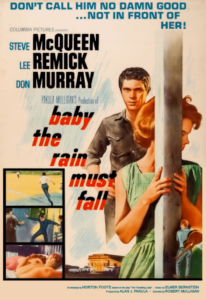
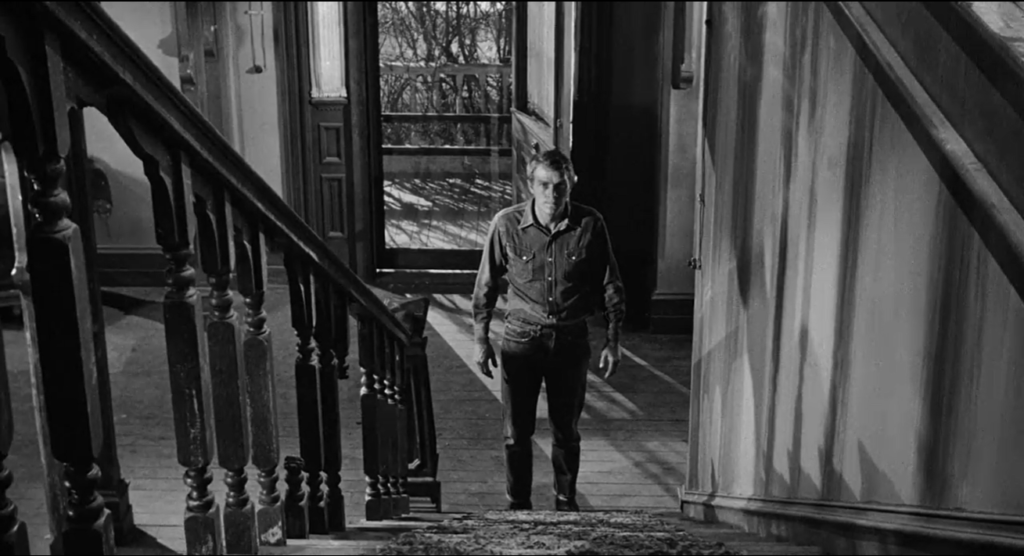
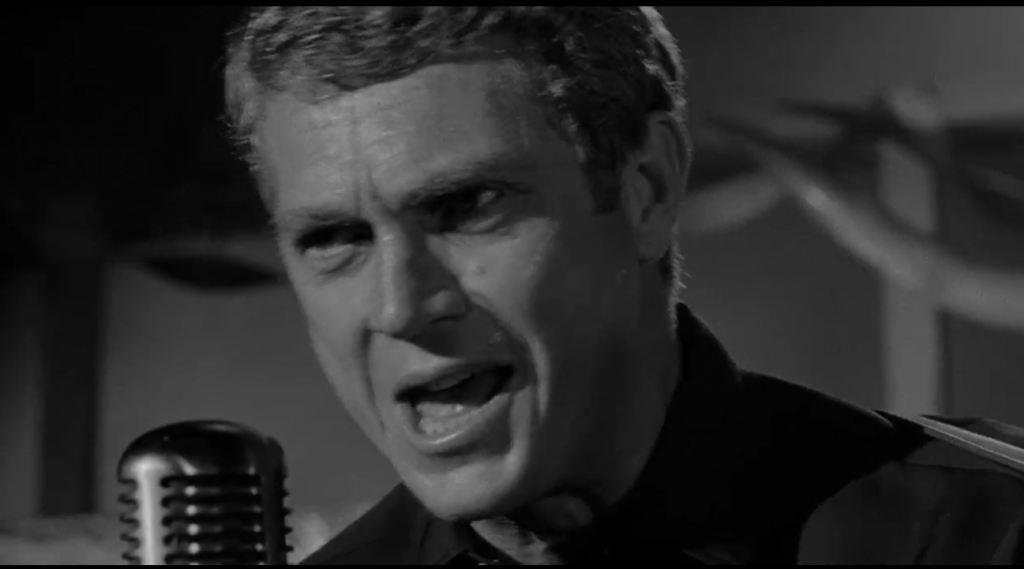
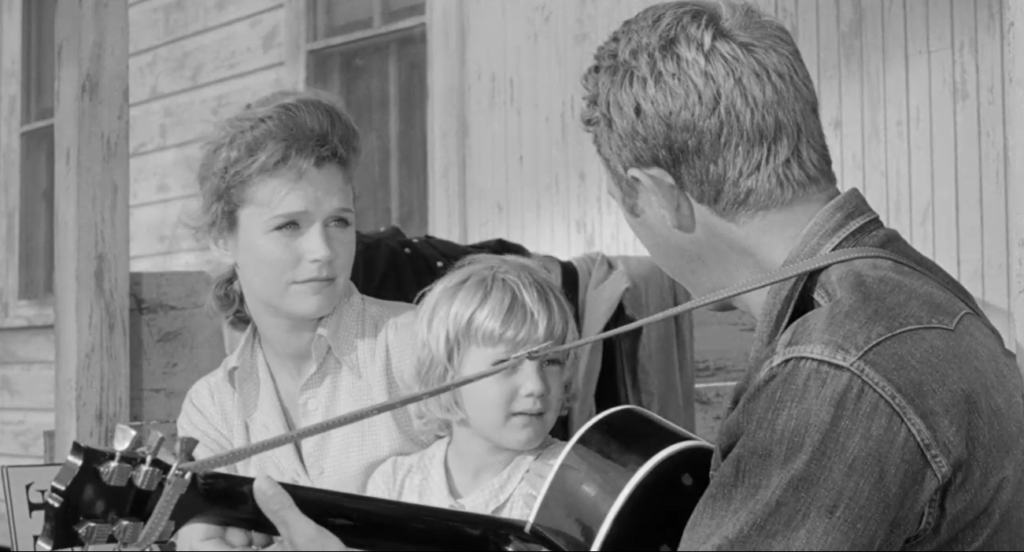
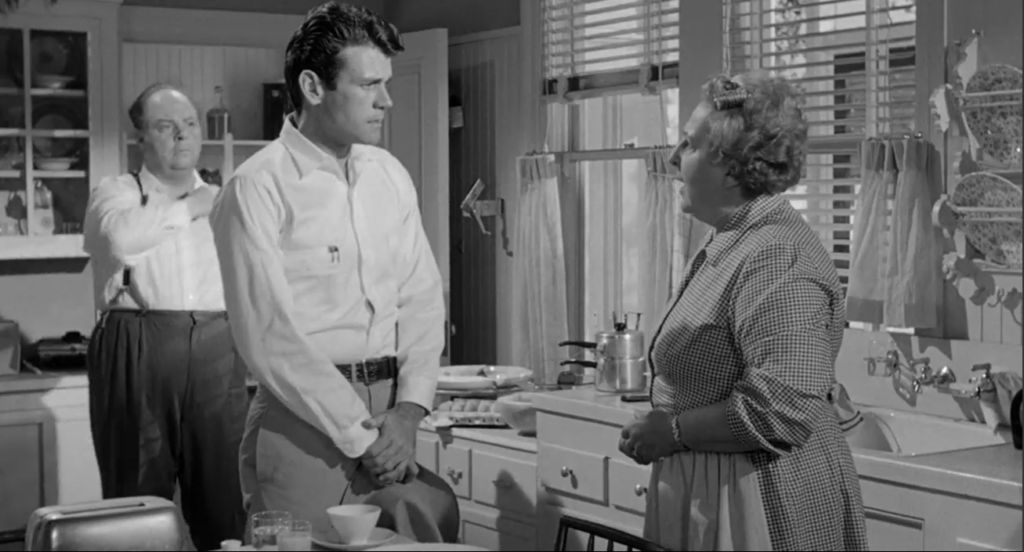
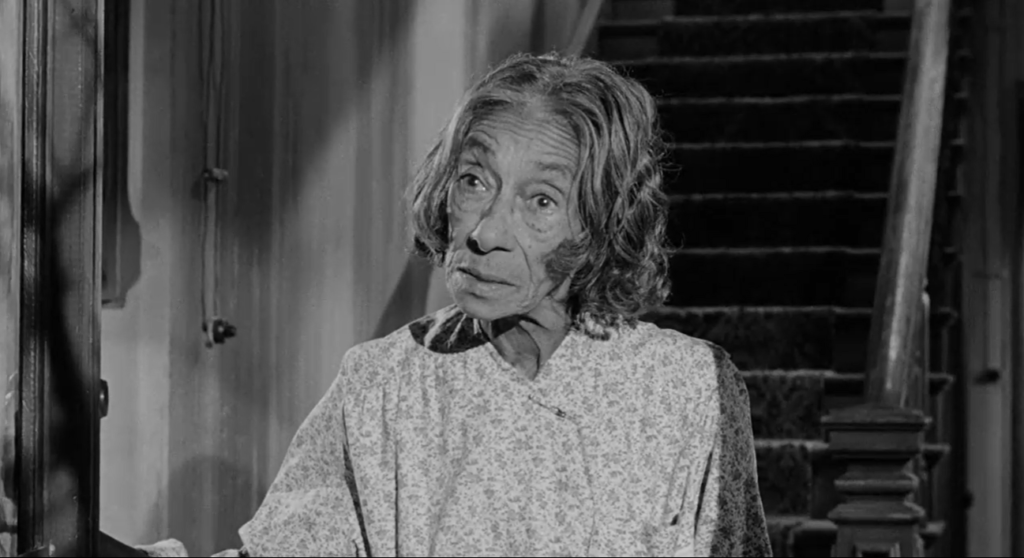
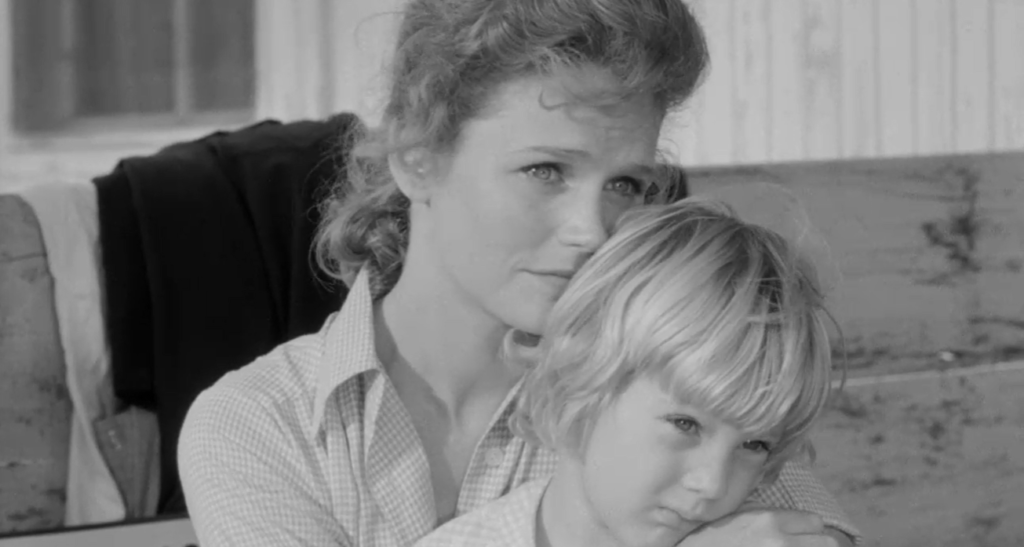
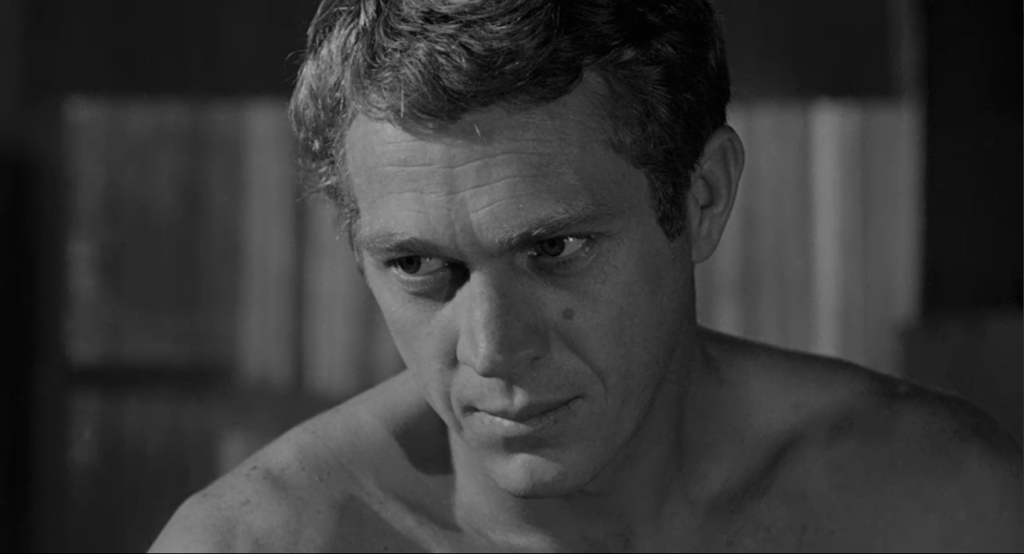
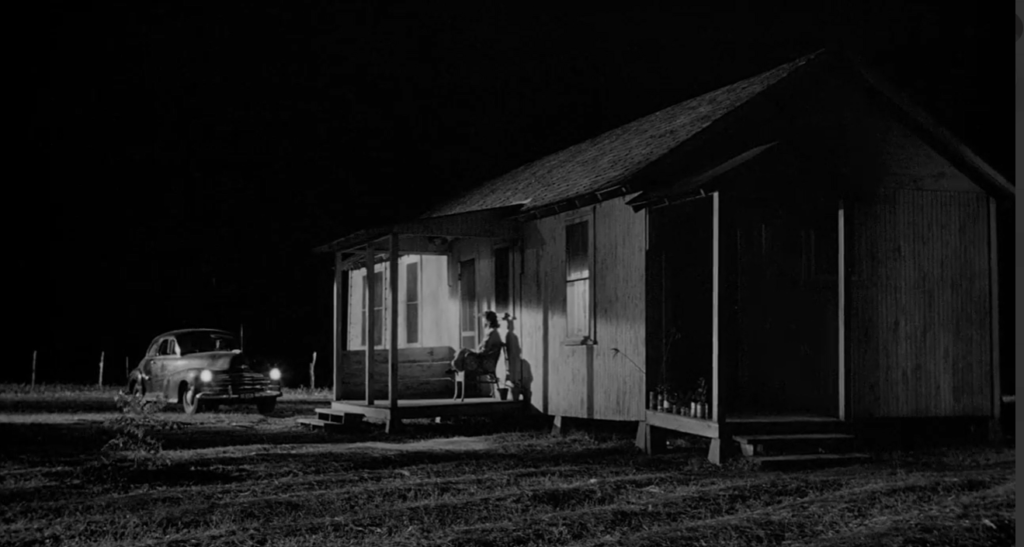
One thought on “Baby the Rain Must Fall (1965)”
First viewing (1/3/22). Not must-see.
~ but it’s a nice-enough little film; an engaging dual-character study of a reunited couple trying to make a go of it, against the odds.
It’s certainly a better film than Mulligan’s ‘Love with the Proper Stranger’ but then the director is here working with a better script – again working with Horton Foote.
This is a film that leans on its performances because the plot is thin. Thin but with some depth, even with its narrow scope. The emotional life of the characters runs deep-enough to keep our interest.
But we do wonder about a few things: We wonder why Henry’s nemesis (Miss Kate) hates him so much, in particular. ~ though that could just be how it is, and frustrating due to the puzzle of it. We wonder why Miss Kate has such a hold on Henry’s fate – esp. since he generally isn’t getting into trouble while on parole (he basically only gets into trouble because of Miss Kate).
That said, it’s nice to see a film about two people who are genuinely in love and trying their best to make their life better. As well, their daughter – in an echo of Mulligan’s ‘To Kill a Mockingbird’ – has a bit of Scout in her (if Scout were younger).
The ‘Mockingbird’ rhythm. in general, echoes here somewhat – esp. with Elmer Bernstein’s score (including its occasional gothic flourish).